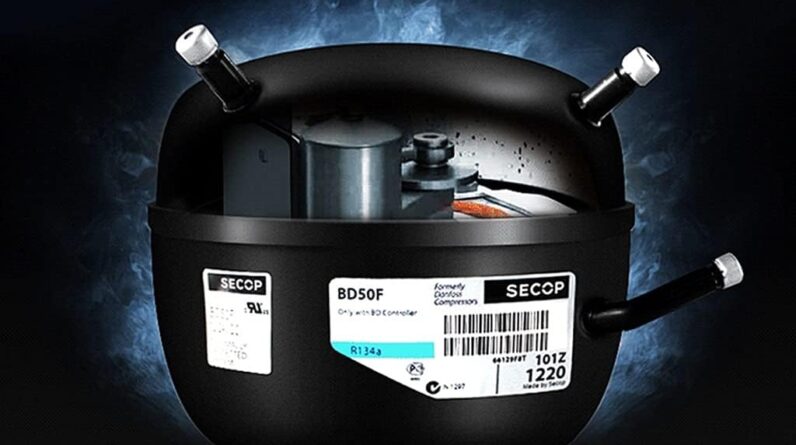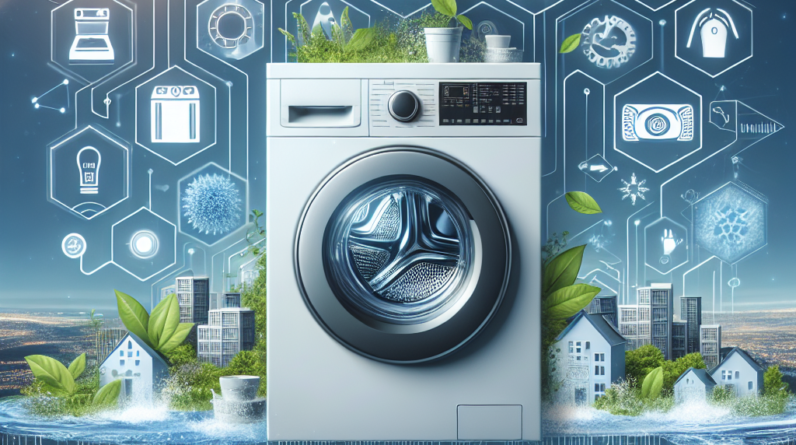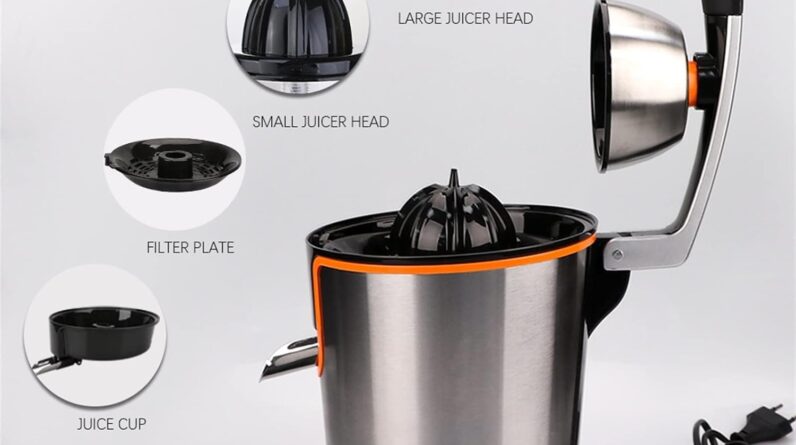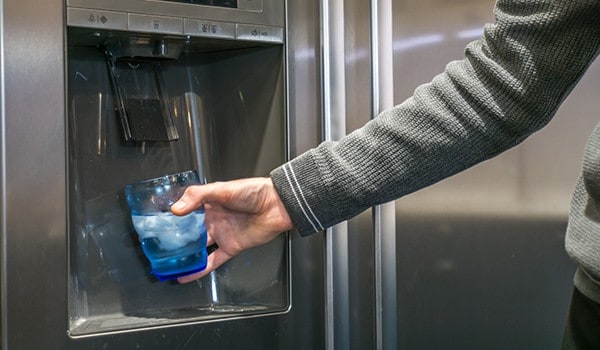
If you’re like most people, you probably rely on your refrigerator’s water filter to provide you with clean and refreshing drinking water. But have you ever wondered how often you should be replacing that filter? Well, wonder no more! In this article, we’ll uncover the answer to that very question and help you ensure that your water is always as fresh and clean as can be. So, grab yourself a glass of water (if you dare!) and let’s dive right in.
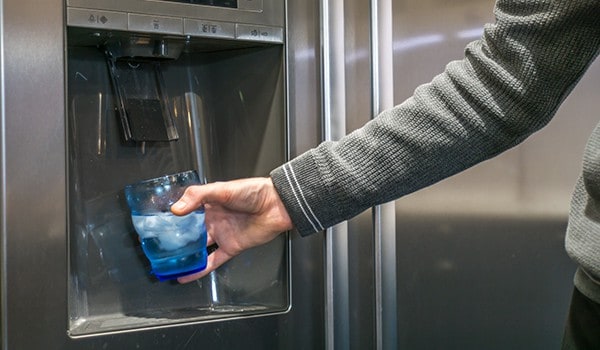
Factors to Consider
Usage Frequency
The usage frequency of your water filter should be taken into consideration when determining how often to replace it. If you use your filtered water multiple times a day, then the filter may need to be replaced more frequently compared to someone who uses it less often.
Water Quality
The quality of your water is another important factor to consider when deciding how often to replace your water filter. If your tap water has a higher concentration of contaminants, such as chlorine or sediment, then the filter may become clogged more quickly and need to be replaced more often.
Manufacturer’s Recommendation
It is always best to consult the manufacturer’s recommendation for your specific water filter model. They will provide guidelines on how often the filter should be replaced to ensure optimal performance and water quality. Following the manufacturer’s recommendation will help you avoid any potential issues or damage to your filter or refrigerator.
Signs that it’s Time to Replace the Water Filter
Decreased Water Flow
One of the signs that it’s time to replace the water filter in your refrigerator is a noticeable decrease in water flow. If you notice that the water is taking longer to dispense or the flow is significantly weaker than usual, it is likely that the filter is clogged and needs to be replaced.
Strange Odor or Taste
Another indication that your water filter needs to be replaced is a strange odor or taste in the water. Water filters are designed to remove impurities and improve the taste and odor of the water. If you start to notice an unpleasant smell or taste, it is a sign that the filter is no longer effectively removing contaminants and needs to be replaced.
Cloudy Ice
If you use the ice maker in your refrigerator, cloudy ice could be a sign that your water filter needs to be replaced. Impurities in the water can cause the ice to appear cloudy or have a strange color. Replacing the water filter can help improve the clarity and quality of the ice cubes.

Determining the Replacement Schedule
Standard Recommendation
The standard recommendation for replacing a water filter in a refrigerator is typically every 6 months. This timeframe provides a balance between maintaining water quality and avoiding unnecessary filter replacements. However, keep in mind that this recommendation may vary depending on the factors mentioned earlier, such as usage frequency and water quality.
Filter Indicator Light
Many modern refrigerators come equipped with a filter indicator light that will notify you when it’s time to replace the water filter. The light may be programmed to activate after a certain number of gallons or months of use. Pay attention to the indicator light and replace the filter accordingly to ensure proper filtration and water quality.
Water Testing
If you’re unsure about the quality of your water or when to replace the filter, you can also opt for water testing. There are water testing kits available that can indicate the levels of contaminants in your water. Testing your water periodically can help you determine the right time to replace the filter and ensure that your water is clean and safe.
Types of Water Filters
Activated Carbon Filters
Activated carbon filters are one of the most common types of water filters used in refrigerators. These filters use activated carbon to remove impurities, such as chlorine, sediment, and some chemicals, from the water. They are effective in improving the taste and odor of the water, and typically need to be replaced every 6 months.
Reverse Osmosis Filters
Reverse osmosis filters are another popular option for water filtration. These filters use a semipermeable membrane to remove a wide range of contaminants, including bacteria, viruses, heavy metals, and dissolved solids. Reverse osmosis filters usually require replacement every 1 to 3 years, depending on water quality and usage.
In-Line Filters
In-line filters are typically used in refrigerators that do not have a built-in water filter. These filters are installed on the water supply line, before it reaches the refrigerator. In-line filters come in various types, such as activated carbon, sediment, or combination filters, and the replacement schedule will depend on the specific type and brand.

How to Replace the Water Filter
Locating the Filter
The first step in replacing the water filter in your refrigerator is to locate it. The filter is usually located inside the refrigerator compartment, near the top or bottom. Refer to your refrigerator’s manual or the manufacturer’s instructions for the exact location of the filter in your model.
Removing the Old Filter
Once you have located the filter, it’s time to remove the old one. Depending on the model, you may need to twist, pull, or push a button to release the old filter. Follow the specific instructions provided by the manufacturer to ensure that you remove the filter safely and easily.
Installing the New Filter
After removing the old filter, it’s time to install the new one. Take the new filter out of its packaging and remove any protective caps or seals. Align the new filter with the filter housing and push it in firmly until it locks into place. Again, refer to the manufacturer’s instructions for your specific model to ensure proper installation.
Tips for Extending the Filter’s Lifespan
Regular Cleaning
Regularly cleaning your filter can help extend its lifespan and improve its performance. Depending on the model, you may be able to rinse the filter under running water or soak it in a solution recommended by the manufacturer. Make sure to follow the cleaning instructions provided to avoid any damage to the filter.
Avoiding Hot Water
Avoid using hot water through your refrigerator’s water dispenser as it can reduce the effectiveness and lifespan of the filter. Hot water can cause the filter to degrade faster, leading to decreased filtration and potential damage. Stick to using cold or room temperature water to prolong the lifespan of your filter.
Avoiding Freezing Temperatures
If you live in an area with freezing temperatures, it is important to protect your water filter from freezing. Freezing temperatures can cause the water inside the filter to expand and potentially damage the filter. Make sure to insulate any exposed water lines or consider removing and storing the filter in a warmer area during periods of freezing weather.
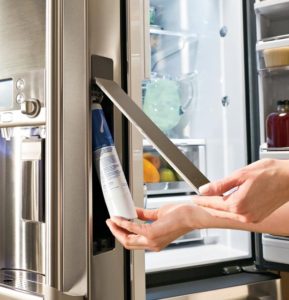
Cost Analysis
Filter Replacement Costs
The cost of replacing a water filter can vary depending on the brand and model of your refrigerator. Replacement filters can range from $20 to $100 or more. It’s important to factor in the ongoing maintenance costs when considering the overall cost of owning a refrigerator with a water filter.
Potential Savings
Although replacing the water filter in your refrigerator may seem like an additional expense, it can actually result in potential savings in the long run. A properly functioning water filter can help extend the lifespan of other components in your refrigerator, such as the ice maker and water dispenser, by preventing clogs and damage. It can also improve the efficiency of your refrigerator, reducing energy consumption and potentially lowering your utility bills.
FAQs
Can I Use Generic Water Filters?
Using generic water filters in your refrigerator is possible, but it is recommended to use filters that are specifically designed for your refrigerator model. Generic filters may not fit properly or provide the same level of filtration as the manufacturer-recommended filters. It’s always best to consult the refrigerator’s manual or contact the manufacturer for guidance on compatible filters.
Can I Extend the Filter’s Lifespan?
While there are ways to extend the lifespan of your water filter, it is important to remember that filters have a finite lifespan and will eventually need to be replaced. Regular cleaning and following usage guidelines, such as avoiding hot water, can help prolong the filter’s effectiveness. However, it’s crucial to replace the filter when signs of deterioration are present to ensure clean and safe drinking water.
Can I Replace the Filter Myself?
Most refrigerator water filters are designed for easy replacement and can be replaced by the homeowner. However, it is always recommended to refer to your refrigerator’s manual or the manufacturer’s instructions for specific guidance. If you’re unsure or uncomfortable with replacing the filter yourself, it is best to seek the assistance of a professional.

Conclusion
Replacing the water filter in your refrigerator is an important task to ensure the quality and safety of your drinking water. Factors such as usage frequency, water quality, and the manufacturer’s recommendation should be considered when determining the replacement schedule. Signs such as decreased water flow, strange odor or taste, and cloudy ice can indicate that it’s time to replace the filter. There are different types of water filters available, including activated carbon filters, reverse osmosis filters, and in-line filters, each with its own replacement schedule and benefits. By following the proper steps to replace the filter and implementing tips for extending its lifespan, you can maintain optimal water quality and potentially save on other refrigerator maintenance costs. Remember to consult the manufacturer’s instructions and seek professional help if needed to ensure a successful replacement process.


